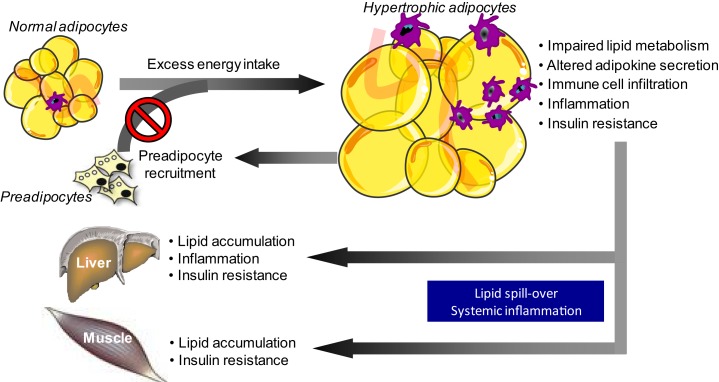Figure 1.
Adipose tissue dysfunction in obesity is related to impaired metabolic health. A long-term positive energy balance, leading to body weight gain, will increase adipocyte size. Adipocyte hypertrophy in obesity is accompanied by disturbances in lipid metabolism and alterations in adipokine secretion, which a shift toward a pro-inflammatory phenotype. The secretion of pro-inflammatory factors, which also impair adipocyte differentiation, is further boosted by the infiltration of several adaptive and innate immune cells into the adipose tissue in obesity. Together, the impairments in lipid metabolism and the secretory function of adipose tissue not only induce insulin resistance locally within the tissue (via autocrine/paracrine effects) but also have detrimental effects at the whole-body level. The reason for this is that adipose tissue dysfunction in obesity is accompanied by lipid spillover in the circulation and subsequent lipid accumulation in non-adipose tissues (ectopic fat storage), and may contribute to systemic low-grade inflammation, thereby accelerating the development and progression of obesity-related insulin resistance and chronic diseases.

